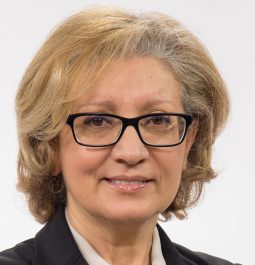Presentation
This interdepartmental master's degree was created in 2002. Its success stems from the fact that it offers a wide curricular diversity and has a stable and qualified teaching staff.
The originality and innovative nature of its teaching has attracted candidates from all over the world, with a very high number of students from all continents. The research that has been developed is remarkable, both in number and in terms of the scope of the dissertations presented and defended so far.
The course is both theoretical and practical in nature, allowing research in domains such as Methodology of Portuguese as a Foreign and Second Language, Multiculturalism, Textuality and Education, Distance Learning, Production of Didactic Materials, Cultures and Literatures of Portuguese Speaking Countries.
The monitoring of the students, during and after the study cycle, confirms the effective dissemination of this training, since the percentage of masters' students that have found professional work in this specific area is very significant.
The Master in Portuguese as a Second and Foreign Language also counts on a vast network of national and international contacts and partnerships, which enable diversified academic experiences in the areas of the course. It is a good example of training tailored to the needs of the current educational and cultural markets.
Objectives
- To deepen the knowledge and skills of analysis and communication in Portuguese acquired during the bachelor’s degree;
- To acquire the skills necessary for research and critical reflection about contemporary issues in education and language teaching, especially Portuguese;
- To acquire an integrated understanding of Education in the contemporary world;
- To acquire skills to enable participation in joint development strategies within the Lusophone world;
- To develop in-depth knowledge of the problems and requirements of second or foreign language teaching, including in multilingual and/or multicultural contexts;
- To acquire the necessary competences for applying methodological instruments of didactic analysis, production and communication to situations of conception and performance of teaching/learning strategies, appropriate for the teaching of Portuguese as a second or foreign language;
- To develop the skills of analysis, exposition and synthesis in both oral and written form, in relation to the themes covered;
- To acquire the theoretical and methodological research skills needed for the production of a dissertation complying with the highest academic standards.
Curricular structure
Duration: 3 semesters Credits: 93 ECTS
Modalities of non-taught component: Dissertation, Project Work or Practical Work Experience with Report.
Number of credits on a free-choice basis: 20 credits (students may complete 20 credits in a free-choice regime in post-graduate level curricular units at FCSH/NOVA, UNL, or at other national or foreign higher education institutions, by means of a protocol).
The Master’s degree corresponds to Level 7 of the NQF and EQF - National Qualifications Framework/European Qualifications Framework.

